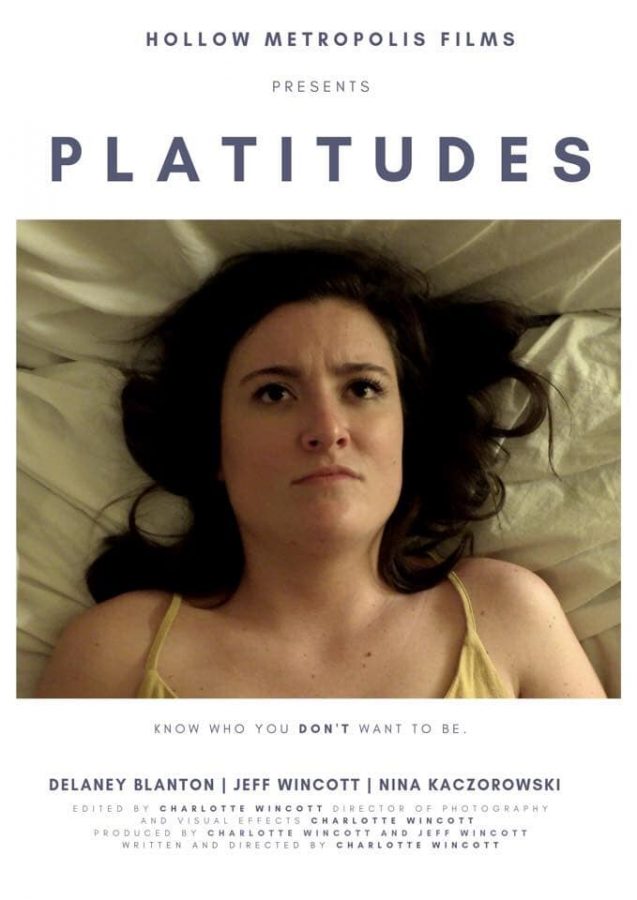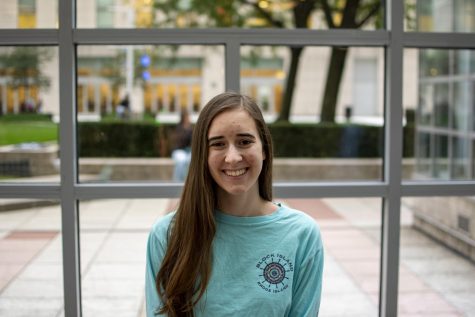Professor Destigmatizes Disorders Through Performance Art
COURTESY OF STEPHANIE ROGERS
“Platitudes,” directed by former Fordham professor Charlotte Wincott, follows the challenges of growing up in a household dealing with addiction.
November 7, 2019
While the Fordham community may primarily know Stephanie Rogers as an adjunct science professor, she is also the creator and producer of the outreach series, “A Lot on the Mind.” These live shows work to “de-stigmatize and humanize neurological disorders” by featuring storytelling and performance art by people diagnosed with them, as well as interactive, engaging explanations of the biology behind such disorders.
Growing up with a sister who has uncontrolled epilepsy, Rogers always participated in outreach work to educate others on the realities of epilepsy and challenge existing misinformation. She still felt frustrated with the lack of representation of people living with these diagnoses and decided to employ a “show, don’t tell” method by founding “A Lot on the Mind.”
“I thought it would be really powerful if people who have disorders talked about what they live because people have no idea what kinds of things these people face,” Rogers said.
Following six events that spotlighted conditions such as epilepsy, autism, Parkinson’s disease and schizophrenia, Rogers will take on the topic of addiction in her upcoming show on Nov. 10. The presentation will premiere neuroscientist and former Fordham professor Dr. Charlotte Wincott’s semi-autobiographical short film, “Platitudes,” which explores the challenges of growing up with a mother who has an alcohol use disorder. There will be a conversation with the founder of Addiction Policy Forum, Jessica Hulsey Nickel, along with a brief introduction to the biology of addiction.
“I wanted to tackle addiction for two reasons,” Rogers recalled. “The first is that the previous venues for all these shows were bars — a lot of the cool science outreach happens at bars. I was frustrated at the fact that if you want to have fun while learning science, you have to be in a bar setting, which can be very triggering for many different reasons. We can’t exclude people with substance use disorder when we talk about venues.” The upcoming event will take place at a movie theater to prevent such triggers.
Rogers explained her second reason for addressing this disorder: “I try to hit very stigmatized things, and addiction is one of the worst stigmatized. People think it’s a moral failing — they use terminology like ‘get clean,’ insinuating that the person is dirty. Addiction is just biology; it should be treated just as all the other medical illnesses are, and it’s not.”
When asked about her passion for the project, Rogers answered, “If you don’t have a disorder or know someone with one, then you don’t think about all the things in your day that aren’t accessible to someone with one. Or even all the tiny ways that inherently create biases against people, even if you don’t intend them to. I think increasing empathy in people is a real goal and, in increasing empathy, you have to show what the struggles are, but also show the strengths.”
She encourages people to learn more about themselves and broaden their knowledge of others by attending the “A Lot on the Mind” series. “One in 10 people have some kind of diagnosis, so chances are, you already know someone or are going to know someone who has a diagnosis. Understanding the struggles and the strengths of those people is really going to make you a better friend, a better person and a better leader.”
“A Lot on the Mind: Living with Addiction” will take place at Anthology Film Archives located at 32 2nd Ave,. in New York City on Sunday, Nov. 10 at 3 p.m. Tickets can be purchased here.
Correction: An earlier version of this article misspelled the name of the Addiction Policy Forum founder. It was updated with the correct spelling on Nov. 8, 2019.












Elie • Nov 7, 2019 at 6:59 pm
I love this idea and I think that initiatives like this are the key for destigmatizing mental health